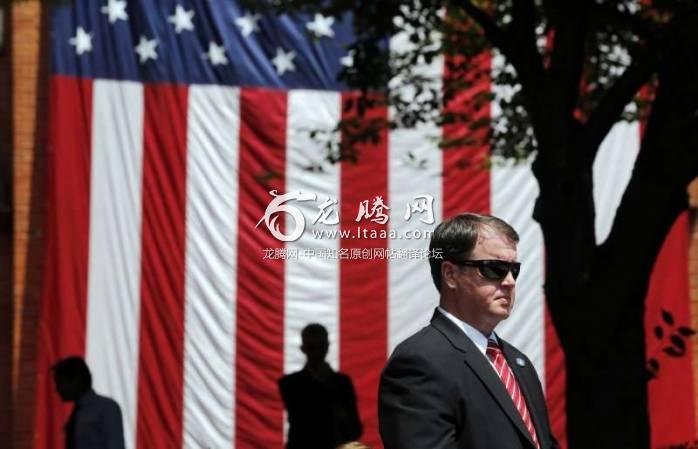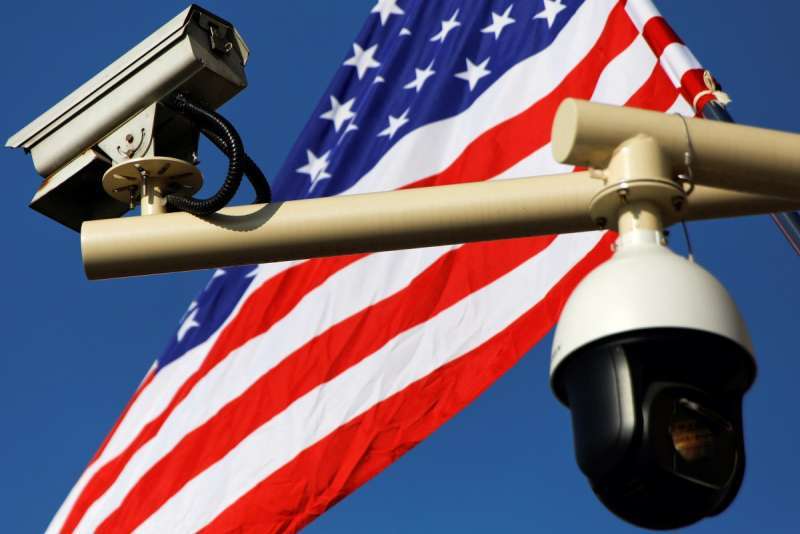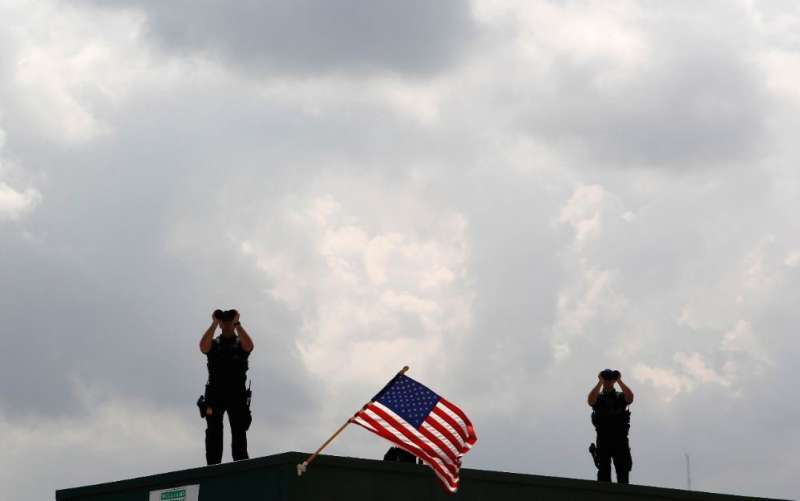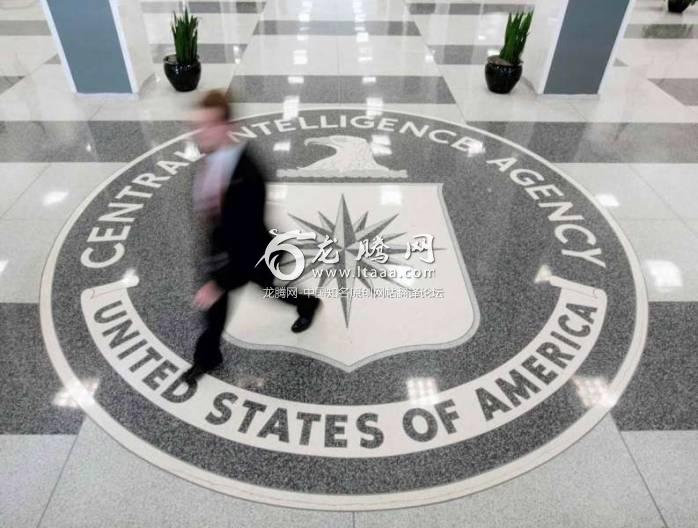【《国家利益》·深层国家专题报道】(上部) [美国媒体]
“深层国家”(Deep State)在美国指的是美国国家安全权势集团,其核心是情报部门、国防部和国务院等政府机构,也涉及情报和国防承包商、华尔街、硅谷等外围集团。在过去一年中,深层国家的概念已经成为了美国政治版图中的一个重要元素。
【《国家利益》·深层国家专题报道】(上部)
译者注:“深层国家”(Deep State)在美国指的是美国国家安全权势集团,其核心是情报部门、国防部和国务院等政府机构,也涉及情报和国防承包商、华尔街、硅谷等外围集团。在过去一年中,深层国家的概念已经成为了美国政治版图中的一个重要元素。近期,《国家利益》杂志就此进行了专题报道,现将专题报道的九篇文章翻译出来,以飨读者。此为上部。
——————————————
Is There a Deep State?
【《国家利益》·深层国家专题报道之一】深层国家存在吗?
IN ALFRED Hitchcock’s 1959 movie North by Northwest, the protagonist Roger Thornhill, a genial New York advertising man played by Cary Grant, is suddenly swept up into clandestine Cold War machinations. Only after he encounters an American spymaster named the Professor, who is based on CIA director Allen Dulles, the brother of John Foster Dulles and a charter member of the American Establishment, does Thornhill begin to decipher the turbulent series of events, including a harrowing encounter with the anonymous pilot of a crop duster, that have put his life in jeopardy. “I don’t like the games you play,” Thornhill declares. “War is hell, Mr. Thornhill,” the Professor retorts, “even when it’s a cold one.” Thornhill is enraged. “Perhaps you ought to start learning,” he says, “how to lose a few cold wars.”
在阿尔弗雷德·希区柯克1959年的电影《西北偏北》中,主人公罗杰·桑希尔——一个由加里·格兰特扮演的和蔼可亲的纽约广告人——突然被卷入了一场秘密的冷战阴谋。只有当他遇到了一个外号为“教授”的美国间谍组织首脑——这一角色是根据美国国务卿约翰·福斯特·杜勒斯的兄弟、中央情报局局长、美国建制派的创始成员艾伦·杜勒斯塑造的——桑希尔才开始揭开一系列危险事件的神秘面纱,其中包括了与一名给作物喷洒农药的不知名飞行员的可怕相遇——这次遭遇让他的生命处于危险之中。桑希尔在电影中说道:“我不喜欢你所玩的游戏”。“战争即地狱,桑希尔先生”,教授反驳道,“即使是冷战也是如此”。桑希尔因此被激怒了,他说道:“也许你应该开始学习如何输掉若干场冷战”。
It’s a telling exchange. Suspicions of an amoral caste of foreign-policy mandarins intent on manipulating, or even subverting, American democracy for their own ends are hardly new. Instead, apprehensions about a cabal have formed a persistent theme of American political debate. Three years after the appearance of Hitchcock’s film, the journalist Richard Rovere wrote a famous spoof, complete with footnotes, about searching for the American Establishment in the American Scholar. His minute researches about “a more or less closed and self-sustaining institution that holds a preponderance of power in our more or less open society” prompted William F. Buckley Jr. to publish a response in Harper’s. Buckley was having none of Rovere’s levity. “The fact of the matter,” wrote Buckley, “is that Mr. Rovere’s disavowals notwithstanding, there is a thing which, properly understood, might well be called an American Establishment; and the success of Mr. Rovere’s essay wholly depends on a sort of nervous apprehension of the correctness of the essential insight.” Indeed, two decades later, Leonard Silk and Mark Silk went on to offer a highly informative conspectus of the institutions of the foreign-policy elite in their 1980 book The American Establishment. There the matter rested.
这是一种交换叙述的手法。怀疑一群不道德的外交政策高级官员意图操纵甚至颠覆美国的民主并不是什么新鲜事。相反,对于阴谋的忧虑已经成为美国政治辩论的一个永恒主题。在希区柯克的电影上映三年后,记者理查德·罗维尔写出了一篇着名的包含注脚的讽刺性文章,意在寻找美国学者中的美国建制派。他关于“一个在我们或多或少开放的社会中拥有主导性权力,但又或多或少处于封闭和自立状态的机构”的详细研究促使威廉·巴克利在哈珀斯杂志上发表了一份回应。巴克利没有表现出类似于罗维尔的任何轻率。巴克利写道:“事实是,尽管罗维尔先生予以了否认,但如果理解正确的话,它很可能被称为美国的建制派;罗维尔先生的文章的成功完全取决于一种对关键洞察力的正确性的焦虑理解”。的确,20年后,伦纳德·希尔克和马克·希尔克在1980年出版的《美国建制派》一书为了解外交政策精英机构的概况提供了非常丰富的信息。这件事就此被搁置。
In recent months, however, apprehensions about a deep state, led by intelligence officials at the FBI, CIA and Justice Department, have acquired a fresh prominence. The conservative Christian leader Franklin Graham is sounding alarms about a “coup d’état” against Donald Trump, and the president himself is warning on Twitter about the sinister operations of a “Deep State Justice Department.” How much credence should be placed in such assertions? Does a deep state exist? Is there really a concerted effort to subvert the Trump administration by government officials? Or is that an outlandish allegation? The National Interest invited leading experts, a number of whom have served in government in senior positions, to explicate and uate the controversy surrounding a deep state.
然而,近几个月来,美国联邦调查局、中央情报局和司法部的情报官员对一个深层国家的担忧已经获得了新的关注。保守的基督教领袖富兰克林·格雷厄姆针对反唐纳德·特朗普的“政变”发出了警告,而总统本人也在推特上警告称这是一场由“深层国家的司法部门”实施的邪恶行动。这种断言有多少可信度?深层国家存在吗?是否真的存在着由政府官员领导的试图颠覆特朗普政府的协作企图?或者它只是一项稀奇古怪的指控?《国家利益》邀请了一些专家——其中一些人曾在政府高级职位上任职——来解释和评估这一围绕着深层国家而展开的争议。
——————————————
The Deep State Is a Distraction
【《国家利益》·深层国家专题报道之二】深层国家是一种干扰
When you hear the term “dark government,” change the channel or turn off the radio; if you see an article, turn the page.
当你听到“黑暗政府”这个词时,请变换频道或者关掉收音机;如果你看到这样的一篇文章,就请翻到下一页。
THERE ARE many historical examples of groups operating within, beside or in opposition to legitimate or illegitimate sitting governments. Perhaps the most notorious instance of an effective “deep state” is the covert “Black Hand” organization. Headed by the Serbian intelligence chief, Colonel “Apis,” it engineered the assassination of Austria’s Crown Prince Franz Ferdinand in Sarajevo in 1914, setting off the First World War.
有许多历史上的例子表明,在反对合法或不合法的政府的行动内部或外部都存在着团队的运作。也许最臭名昭着的“深层国家”的例子就是秘密的“黑手”组织。这个由塞尔维亚情报领导者“阿匹斯”上校所领导的组织策划了1914年萨拉热窝刺杀奥地利王储弗茨·斐迪南大公的事件,从而引发了第一次世界大战。
Today, in the United States and elsewhere, there are undoubtedly groups, motivated by principle, amusement, or profit, that seek to influence government actions covertly. Such groups employ conventional tools such as lobbying and campaign contributions, and are increasing delivering their message through both conventional and social media.
今天,在美国和其他地方,毫无疑问的是,这些团体是由原则、娱乐或利益所驱动的,它们试图暗中影响政府的行动。这样的组织使用传统的手段,如游说和竞选捐款,并且通过传统媒体和社交媒体来增加他们信息的传递。
Noisy exchanges on TV programs, tweets from the White House and magazine commentaries are extremely weak reeds on which to build a theory of the existence of a nefarious “deep state.” The more paranoid supporters of President Trump say that the new deep state constitutes organized resistance by federal government employees who are determined to subvert his presidency. It should come as no surprise that federal employees, mostly in civilian agencies, dislike President Trump’s politics and policies, especially those that call for budget cuts and reductions in force. But to call this resistance organized is a stretch. Indeed, it is laughable to claim that an escalation in leaks from disgruntled government employees intending to influence policy serves as prima facie evidence of a deep state. Quite the contrary. Such leaks, which are abhorrent to me, many others view as a strength, not a weakness, of U.S. democracy.
电视节目、白宫所发表的推特和杂志评论上的嘈杂交流都是极其不可靠的,正是在它们的基础上建立其了一个邪恶的“深度国家”存在的理论。特朗普的偏执支持者认为这个新的深度国家导致了联邦政府雇员的有组织抵制,这些人决心颠覆他的总统统治权。毫无疑问,联邦政府的雇员们——尤其是那些文职人员——不喜欢特朗普总统的政治和政策,特别是那些呼吁削减预算和削减开支的主张。但是称这种抵抗为组织的则是一种夸张。的确,将心怀不满的、意图影响政策轨迹的政府雇员所导致的泄密事件的不断升级称为是深层国家存在的表面证据是一件很可笑的事情。事实恰恰相反。这样的泄密行为——我非常厌恶这种行为——被许多人视为是美国民主的强大之处,而不是它的弱点。
There is little analysis or evidence to bear on the question of the existence of a deep state. Perhaps a simpler question is whether there has been a shift over recent years to more behavior that is characterized as coming from a deep state, and whether such behavior risks national security. I doubt both propositions. The significant national-security threats that face the nation today—Iran, North Korea, terrorism, competition with China and Russia—are not central in the deep-state narrative.
几乎没有什么分析或证据能证明一个深层国家的存在。或许一个更简单的问题是,近年来是否发生了一种转变,即更多的行为被认为是来自于一个深层国家,以及这种行为是否会危及国家安全。我怀疑这两个假设。今日我们国家所面临的重大国家安全威胁——伊朗、朝鲜、恐怖主义、与中国和俄罗斯的竞争——并不处于深层国家叙事的核心。
Concern with a new and more dangerous conspiracy by U.S. intelligence agencies, greed of private-sector firms, or dissatisfied federal or congressional staff, is not a mortal threat to national security or stability (as Colonel Apis was in 1914). Such behavior has been present in U.S. history since Aaron Burr’s effort to establish an independent republic in the west. More importantly, the very genuine terrorist threat (especially augmented by cyberattacks) that the nation faces has an entirely different set of causes, manner of delivery and sponsorship.
对美国情报机构的一种新的、更危险的阴谋、私营企业的贪婪或者不满的联邦或国会工作人员的担忧,并不是国家安全或稳定的致命威胁(就像1914年的阿匹斯上校一样)。自从阿龙·伯尔试图在西部建立一个独立的共和国以来,这种行为现在又出现在了美国历史上。更重要的是,美国面临的真正的恐怖主义威胁(尤其是网络攻击)有着完全不同的原因、实现方式和支持方式。
The deep-state narrative is stuck on a single subject: who is doing what to whom in Washington—a matter that is of scant significance to most Americans and to the future of the republic. It is the result of President Trump’s unexpected presidential victory and the clash of his admittedly bizarre behavior and voice on the ears of the comfortable political elite that have been in office for decades. I have sympathy with both views: President Trump’s behavior and policy actions are disruptive and nonsensical. However, President Trump is addressing a set of issues that have been avoided for some time by right-thinking people in both parties: the linkage between trade and jobs, economic growth, and overregulation.
深层国家的叙事只停留在了一个主题上:谁在华盛顿在对谁在做什么——这件事对大多数美国人和这个国家的未来而言都没有什么意义。这是特朗普出人意料的总统选举所取得的胜利、他无可否认的怪异行为,以及几十年来一直在身居其位的舒适政治精英们耳畔所想起的声音的结果。我对这两种观点都表示赞同:特朗普总统的行为和政策行动是具有破坏性的,也是荒谬的。然而,特朗普总统正在解决一些问题,这些问题在某些情况下是可以避免的。
Here is my advice. When you hear the term “dark government,” change the channel or turn off the radio; if you see an article, turn the page. Give your attention to questions that directly bear on the welfare of our country going forward: health care, climate change, innovation and genuine national-security concerns.
这是我的建议。当你听到“黑暗政府”这个词时,请变换频道或者关掉收音机;如果你看到这样的一篇文章,就翻到下一页去。请关注那些直接影响我们国家未来福祉的问题:医疗保健、气候变化、创新和真正的国家安全问题。
——————————————
The Deep State Isn't What You Think
【《国家利益》·深层国家专题报道之三】深层国家并非如你所想
The problem is not that the “deep state” is thwarting Trump’s policy agenda. It is his reliance on advisers who agree with the post–Cold War foreign-policy consensus.
问题不在于“深层国家”阻碍了特朗普的政策议程,而在于他对那些认同冷战之后外交政策共识的顾问的依赖。
THE MIGRATION of the idea that a “deep state” controls the U.S. government from the realm of fringe conspiracy theorists to mainstream political discussion is undoubtedly one of the more intriguing developments in the last year. But Donald Trump’s repeated assertions that a deep state exists, and that it is actively thwarting his policy agenda, pushing investigations into his campaign or even wiretapping his offices, mean that the idea has now become a part of our mental landscape.
“深层国家”控制美国政府的观点从边缘化的阴谋论者手中进入到主流政治讨论的转变无疑是去年最引人注目的事态发展之一。唐纳德·特朗普一再重申,美国存在着一个深度国家,而且后者正在积极地阻挠他的政策议程,推动对他的竞选活动的调查,甚至窃听他的办公室,这意味着这个观点现在已经成为我们精神风貌的组成部分。
It is utter nonsense.
这完全是一派胡言。
Certainly, there will always be pressure on foreign policy from entrenched interest groups, both inside and outside the government. Political scientists study the field of bureaucratic politics for a reason: institutional structure and incentives matter a lot. But the idea that the whole American bureaucracy shares a common goal on practically any issue area simply doesn’t pass muster. The tools of the so-called “deep state”—bureaucratic inertia, internal policy debates, conflicts over resources—are far more often used in interagency turf wars than to force politicians to adopt a certain policy.
当然,无论是政府内部还是外部的既得利益集团,都会对外交政策施加压力。政治学家对官僚政治的领域展开研究是有原因的:制度结构和激励机制非常重要,但美国的官僚机构在几乎任何问题领域都拥有着共同的目标的想法根本是算不得数的。所谓的“深层国家”的工具——官僚主义的惰性、内部政策的辩论、资源的冲突——在跨部门的地盘争夺战中要比迫使政客们采取某种政治手段更经常被用到。
At the same time, there are undoubtedly civil servants who find themselves unwilling or unable to implement the president’s policy agenda. Whether it is a special counsel who pursues the law rather than loyalty to an individual, as Donald Trump demands, or a Foreign Service professional who finds himself unwilling to work for a leader such as Trump, not all public servants will willingly help Trump implement his policy or personal preferences.
与此同时,毫无疑问的是:公务员们发现自己不愿意或不能执行总统的政策议程。不管他是追求法律正义而不是忠于一个人——正如唐纳德·特朗普所要求的——特别顾问,还是发现自己不愿意为像特朗普这样的领导人工作的外交专业人员,不是所有的公务员都会心甘情愿地去帮助特朗普执行他的政策或个人喜好。
Yet this mostly results in resignations, not internal rebellion. Indeed, as John Feeley, ambassador to Panama, noted in his resignation letter, civil servants take an oath to defend the constitution. When they cannot reconcile that oath or their personal opinions with the administration’s stances, they are “honor bound to resign.”
然而,这一现象的主要结果是辞职,而不是内部的叛乱。事实上,正如驻巴拿马大使约翰·菲利在他的辞职信中所提到的,公务员们宣誓捍卫宪法。当他们不能将誓言或他们的个人意见与政府的立场加以调和时,他们“为了荣誉必然是要辞职的”。
Nonetheless, critics like Michael Glennon are right that there has been remarkable consistency over time in U.S. foreign policy. Even presidents who are critical of U.S. foreign policy while campaigning usually dial back that criticism in office, and fail to follow through on their promises. Jimmy Carter’s plan to withdraw U.S. troops from the Korean Peninsula ultimately failed, while Donald Trump’s promise to end the war in Afghanistan eventually morphed into an increase of troops on the ground.
尽管如此,像迈克尔·格伦农这样的批评者的观点是正确的,即美国的外交政策长期以来一直保持着显着的一致性。即便是那些在竞选活动中批评美国外交政策的总统,通常也会在办公室里收回批评的声音,他们并没有兑现自己的承诺。吉米·卡特从朝鲜半岛撤军的计划最终失败了,而唐纳德·特朗普结束阿富汗战争的承诺最终则变成了增加地面部队的数量。
These critics are accurate in their depiction of U.S. foreign policy. There is a surprising amount of consistency between presidential administrations on foreign policy. But whether they call it “double government” or the “deep state,” the focus of critics on some unelected network of bureaucrats as the cause of this consistency is misguided.
这些批评人士对美国外交政策的描述是准确的。总统政府在外交政策上的一致性令人惊讶。但是,不管他们称之为“双重政府”还是“深层国家”,批评人士对一些未经选举产生的官僚网络的关注都是误入歧途的。
Instead, they’d do better to look to the bipartisan foreign-policy consensus that has guided American policy since the end of the Cold War. This consensus—commonly described as liberal hegemony or primacy—focuses on a globally active United States with extensive overseas military and alliance commitments, and is shared by the majority of the policymaking community in Washington, DC. The result is that when presidents seek foreign-policy advisers, they primarily draw on this pool of recruits.
相反,他们最好去了解一下在冷战结束后指导美国政策的两党外交政策共识。这种共识——通常被描述为自由主义的霸权或者是优先地位——关注的是一个在全球范围内保持活跃状态并且拥有大量的海外军事基地和对同盟义务的美国,它被华盛顿的决策圈的大部分人所赞同。其结果是,当总统寻找外交政策顾问时,他们主要就是从这一群人当中进行招募。
Trump has been reluctant to recruit from among this pool of advisers, in part due to the open opposition to him from many during the campaign. Nor has he been able to recruit those who criticize the liberal international consensus—his views on trade and immigration, and his repugnant statements and personal views, have alienated even those who might be willing or happy to attempt to reshape U.S. foreign policy in any other administration. Instead, Trump has been forced to rely on a mixture of unqualified individuals and former military officers. Many other offices remain unfilled.
特朗普一直不愿从这群顾问中招募新人,这在一定程度上是因为他们在竞选期间对他的公开反对。他也无法招募那些批评自由派的国际主义共识的人——他在贸易和移民问题上的观点,以及他令人反感的言论和个人观点,甚至疏远了那些可能愿意或乐于尝试重塑美国外交政策的人。相反,特朗普被迫依赖于有不合格的个人和前军官组成的混合体。其他许多的办公室仍未被填满。
Unsurprisingly, his administration has found it difficult to formulate and implement foreign policy while understaffed. The areas in which it has done so are thus far conventional, as his few advisors push him towards orthodoxy on issues like troop levels in Afghanistan, and take the lead in drafting his administration’s strategy documents.
不出所料的是,他的政府发现:在人手不足的情况下制定和实施外交政策是困难的。到目前为止,他有所动作的这些领域都是非常传统的,因为他的少数几位顾问在阿富汗军队部署的级别等问题上正将他推向正统一方,并带头起草了他的政府战略文件。
The problem is not, as Trump claims, that the “deep state” is thwarting his policy agenda. It is his reliance—even as a relative outsider to DC politics—on advisers who themselves agree with the post–Cold War foreign-policy consensus. So long as that consensus remains unchallenged, U.S. foreign policy will continue to tread the same, consistent path, regardless of administration.
问题不像特朗普所宣称的那样,在于“深层国家”阻碍了他的政策议程。他所倚靠的——甚至包括华盛顿政治圈相对而言的局外人——正是那些赞同后冷战时期外交政策共识的那一批顾问。只要这一共识没有受到挑战,美国的外交政策将继续保持同样的、一贯的路线,不管是哪一届政府。
——————————————
The Deep State Is Very Real
【《国家利益》·深层国家专题报道之四】深层国家是非常真实的存在
How the Deep State stopped better relations with Russia.
深层国家如何阻挠与俄罗斯之间保持更好的关系。
OF COURSE there’s a Deep State. Why wouldn’t there be? Even a cursory understanding of human nature tells us that power corrupts, as Lord Acton put it; that, when power is concentrated and entrenched, it will be abused; that, when it is concentrated and entrenched in secrecy, it will be abused in secret. That’s the Deep State.
深层国家当然是存在的。为什么会不存在?正如阿克顿勋爵所言,即使是对人性的粗略了解也可以告诉我们,权力会导致腐败。当权力集中且根深蒂固时,它就会被滥用;当它被秘密地集中并变得根深蒂固时,它将会被秘密地滥用。这就是深层国家。
James Burnham saw it coming. The American philosopher and political theorist (1905–87), first a Trotskyist, then a leading conservative intellectual, wrote in 1941 that the great political development of the age was not the battle between communism and capitalism. Rather, it was the rise of a new “managerial” class gaining dominance in business, finance, organized labor and government. This gathering managerial revolution, as he called it, would be resisted, but it would be impervious to adversarial counteractions. As the managerial elites gained more and more power, exercised often in subtle and stealthy ways, they would exercise that power to embed themselves further into the folds of American society and to protect themselves from those who might want to bust them up.
詹姆斯·伯恩哈姆预见到了深层国家的到来。这位美国哲学家和政治理论家(1905年至1987年)首先是一个托洛茨基分子,然后才是一位着名的保守派知识分子。他在1941年写道,这个时代的伟大政治发展不是共产主义和资本主义之间的战争。相反,它是一个新的“管理”阶层的崛起,这个阶层在商业、金融、工会和政府中占据了主导地位。正如他所说的那样,这次集中的管理革命将受到抵制,但它不会受到敌对的反制行动的影响。当管理精英们获得越来越多的权力时,他们往往会以微妙而隐秘的方式行使权力,他们会行使这种权力,将自己嵌入到美国社会的褶皱当中,保护自己免受那些可能想要剿灭他们的人的影响。
Nowhere is this managerial elite more entrenched, more powerful and more shrouded in secrecy than in what Dwight Eisenhower called the military-industrial complex, augmented by intelligence and law-enforcement agencies. That’s where America’s relentless drive for global hegemony meshes with defense manufacturers only too willing to provide the tools of dominance.
没有什么地方比德怀特·艾森豪威尔所谓的“军工联合体”更牢固、更强大、更隐蔽了,它之后又得到了情报机构和执法机构的补足。这就是美国不写追求全球霸权的驱动力与极其情愿提供主导工具的国防制造商展开竞争的场所。
Now we have not only a standing army, with hundreds of thousands of troops at the ready, as in Cold War days. We have also permanent wars, nine of them in progress at the moment and not one with what could even remotely be called proper congressional approval. That’s how power gets entrenched, how the managerial revolution gains ever greater force and how the Deep State endures.
现在,我们不仅有一支常备军,还有成千上万的军队随时待命,就像在冷战时期一样。我们也在进行着永久的战争,此刻有九场正在进行,另外一场经来也会得到“国会批准”的。这就是权力如何根深蒂固,管理革命如何获得更大的力量,以及深刻的国家是如何持久之所在。
Few in the general public know what really happened with regard to the allegations of Trump campaign “collusion” with Russia, or how the investigation into those troubling allegations emerged. But we know enough to know we have seen the Deep State in action.
在公众当中,几乎没有人知道针对特朗普与俄罗斯“勾结”的指控到底是怎么回事,也没有人知道对这些令人不安的指控的调查是如何进行的。但我们知道,我们已经看到深层国家在行动了。
We know that U.S. agencies released an “Intelligence Community Assessment” saying that Russia and President Putin were behind the release of embarrassing Democratic emails in a plot to help Trump win the presidency. But we also know that it wasn’t really a National Intelligence Assessment (a term of art denoting a particular process of expansive intelligence analysis) but rather the work of a controlled task force. As Scott Ritter, the former Marine intelligence officer and arms-control official, put it, “This deliberate misrepresentation of the organizational bona fides of the Russia NIA casts a shadow over the viability of the analysis used to underpin the assessments and judgments contained within.” Besides, the document was long on assertion and short on evidence. Even the New York Times initially derided the report as lacking any “hard evidence” and amounting “essentially . . . to ‘trust us.’”
我们知道,美国情报机构发布了一份“情报群体评估”报告,称俄罗斯和普京总统是在帮助特朗普赢得总统选举的阴谋中发布了令人尴尬的民主党邮件的幕后黑手。但我们也知道,这并不是一个真正的国家情报评估结果(一种指称广泛的情报分析的特定过程的术语),而是一个受控的特别工作组的工作成果。正如前海军情报官员和武器控制官员斯科特·瑞特尔所说的那样:“这一故意歪曲了俄罗斯情报局有组织的善意的做法对被用来支持内部的评估和判断的分析的可行性产生了影响”。此外,这份文件长期以来都是基于断言,显得证据不足。就连纽约时报最初也嘲笑这份报告缺乏“确凿的证据”,而且“基本上就是在说‘请相信我们’”。
We have substantial reason to believe that an unconfirmed salacious report on Trump, paid for by the Democratic Party and the Hillary Clinton campaign (with the FBI eventually getting hold of it), was used in an effort to get a secret national-security warrant so the government could spy on the Trump campaign. We know that the FBI went easy on Clinton in its investigation of her irresponsible email practices, and then we find out that a top FBI official involved in both the Clinton and Trump/Russia investigations despised Trump, liked Hillary and expressed an interest in doing what he could to thwart Trump’s emergence. We know he privately told his lover that, while he didn’t think Trump could win, he nevertheless felt a need for an “insurance policy” because “I’m afraid we can’t take that risk.” We know these matters were discussed in the office of FBI deputy director Andrew McCabe.
我们有实质性的理由相信,这项由民主党和希拉里·克林顿的竞选团队花钱制作的(最终由美国联邦调查局所掌握)、关于特朗普的未经证实的淫荡报告的目的是试图获得一份秘密的国家安全许可证,这样政府就可以刺探特朗普的竞选活动。我们知道联邦调查局在对希拉里·克林顿不负责任的邮件门进行的调查中轻易地放过了她,然后我们发现联邦调查局的一名参与了克林顿以及特朗普与俄罗斯调查活动的高级官员蔑视特朗普且支持希拉里,他表示过将尽一切所能阻止特朗普当选的意思。我们知道,他私下告诉他的爱人,虽然他不认为特朗普会赢,但他仍然觉得有必要制定“保险政策”,因为“我担心我们不能承担这样的风险。”我们知道,这些问题也在联邦调查局副局长安德鲁·麦凯布的办公室里被讨论过。
We know further that former FBI director James Comey used a cutout to leak to the press a rendition of an Oval Office conversation with the president that could be interpreted adversely to Trump. We know he did this to set in motion the appointment of an independent investigator, a potentially mortal threat to any president—and perhaps particularly to this freewheeling billionaire developer.
我们进一步了解到,前联邦调查局局长詹姆斯·科米利用一个机会向媒体透露了他与总统在椭圆形办公室的对话,这可能会对特朗普造成不利的影响。我们知道,他这样做是为了让一名独立调查人员的任命成为可能,这对任何一位总统来说都是致命的威胁,对特朗普这位随心所欲的亿万富翁开发商来说尤其如此。
Perhaps most significant, we know that all this had the effect of wrenching from the president the flexibility to pursue a policy agenda on which he had campaigned—and which presumably contributed to his election. That was his promise to work toward improved relations between the United States and Russia. Prospects for such a diplomatic initiative now are as dead as the dodo bird. Trump lost that one. The Deep State won.
或许最重要的是,我们知道,所有这些都有可能对这位总统落实他在竞选过程中所承诺的政策议程——而这大概也是他当选的原因之一——产生歪曲效应。那就是他为改善美俄关系所做出的承诺。如今,这种外交行动的前景已经像渡渡鸟一样消亡殆尽了。特朗普以失败告终。深层国家取得了胜利。
——————————————
The Deep State Has Long Abused Its Power
【《国家利益》·深层国家专题报道之五】深层国家长期滥用其权力
From Eisenhower to Trump, the intelligence community has always struggled with its political role.
从艾森豪威尔政府到特朗普政府,情报界一直在为其政治角色而斗争。
FEW QUESTIONS have greater import for the health and integrity of any republic than the question of whether important parts of its government’s national-security apparatus are abusing their power for political purposes. This is particularly true in the United States, where the departments and agencies known collectively as the Intelligence Community (IC) have grown so large and capable, where faith in the integrity of our democratic institutions is so vital to the effective functioning of our system, and where suspicions about secret police and intelligence organizations are baked so deeply into our country’s political culture.
对于任何一个国家的健康和完整而言,几乎没有什么问题要比其政府国家安全机构的重要组成部分是否滥用其政治权力的问题更有意义了。尤其是在美国——这个国家中被成为情报圈(IC)的部门和机构的规模和能力已经获得了长足的发展,在这个国家中,对于我们的民主制度的完整性的信念对我们系统的有效运作而言至关重要,对秘密警察和情报机构的怀疑已经深深嵌入了我们国家的政治文化当中。
The United States has faced this question several times in its recent history. The Eisenhower, Kennedy, Johnson and Nixon administrations all used—or attempted to use—the FBI and CIA to gather intelligence on U.S. citizens they suspected of collaboration with communist agents, with too little regard for statutory regulations and prohibitions of such practices, and too great a tendency to view their political enemies as national-security threats. Lyndon B. Johnson believed, without much justification, that the CIA had conspired against him at the 1960 Democratic convention to ensure that John F. Kennedy won the presidential nomination. Richard Nixon was equally convinced that the CIA had helped to swing the subsequent presidential election to Kennedy. These misperceptions barely surfaced in public at the time and did little to shake voters’ faith in the outcome of the election, but they had significant implications for the working relationships of both Johnson and Nixon with the CIA once in office. Johnson’s suspicions probably increased his inclination to side with the Defense Department’s optimistic assessments of the Vietnam War over the CIA’s more pessimistic—and, in retrospect, more accurate—analyses. Nixon’s suspicions fueled his determination to build a small intelligence-gathering and covert-action group within the White House, which ultimately led to the Watergate break-in and cover-up that destroyed his presidency.
在最近的历史中,美国多次面临这个问题。艾森豪威尔、肯尼迪、约翰逊和尼克松政府都曾经使用——或者尝试使用——联邦调查局和中央情报局收集他们怀疑与共产主义代理人合作的美国公民的情报,而很少考虑到法律规定和针对这样行为的禁令,而且他们有着将政敌视为国家安全威胁的强烈趋势。林登·约翰逊相信,在1960年的民主党大会上,中央情报局曾密谋反对他,以确保肯尼迪获得了总统提名。理查德·尼克松同样坚信,中央情报局曾帮助肯尼迪总统赢得了大选。这些误解在当时几乎没有出现在公众面前,并没有动摇选民对选举结果的信心,但是一旦约翰逊和尼克松就任总统,它们就对这两人与中央情报局的工作关系产生了重大影响。约翰逊的怀疑可能增加了他支持美国国防部对越南战争的乐观评估的倾向,因为美国中央情报局的评估更加悲观,而且——回想起来——更加准确。尼克松的猜疑助长了他在白宫内建立一个小型情报收集和行动小组的决心,这最终导致了闯入水门大厦的行动和后续的掩盖,从而终结了他的总统任期。
Investigations in the 1970s into various IC abuses, including efforts to collect intelligence on the political activities of U.S. citizens, led to the creation of specially designated congressional oversight committees—the House Permanent Select Committee on Intelligence and the Senate Select Committee on Intelligence—with the power and authorization to ensure that the CIA, NSA, FBI, and other IC bodies conduct their activities strictly within the bounds of law. The investigations also resulted in the Foreign Intelligence Surveillance Act (FISA) of 1978, which imposed strict limits on the government’s ability to surveil the communications and activities of U.S. persons, requiring warrants issued by a special FISA court based on probable cause to believe that the target is a foreign power or its agent. The act established “minimization” requirements for disclosing the identities of U.S. persons being surveilled, allowing for “unmasking”—that is, revealing their names to authorized government officials—only when there is strong reason to believe they have committed a crime or when their identities are necessary to understand the intelligence information.
1970年代针对情报圈各种滥用职权行为的调查,包括收集美国公民政治活动情报的努力,创造了特别指定的国会监督委员会——即众议院常设特别情报委员会和参议院情报委员会,它们拥有确保美国中央情报局、国家安全局、联邦调查局和其他情报圈机构严格按照法律规定展开活动的权力和授权。调查也导致了1978年外国情报监视法案(FISA)的出台,这项法案严格限制政府监视通信和美国公民活动的能力,如需监视,需要由一个特别的外国情报监视法案法庭基于确信目标是外国势力及其代理人的可能缘由而签发的许可令。该法案确立了公开被监视的美国公民身份、允许其暴露的“最小化”要求——也就是说,只有当有充分的理由相信他们犯了罪,或者当需要他们的身份以获取情报信息时,他们的姓名才会被披露给获授权的政府官员。
The now-infamous Iraq WMD estimate of 2002 raised questions of the political misuse of intelligence in a different form. Seldom had intelligence figured more prominently in the public justifications for a decision to go to war, and seldom had it been proven more spectacularly wrong in retrospect. Years of efforts by the CIA to increase its relevance had paid off in an unprecedentedly close relationship to the White House, but its unique ability to provide policymakers with the skepticism of a disinterested party suffered. The reorganization and reform of the IC mandated by the Intelligence Reform and Terrorism Prevention Act of 2005 were designed less to prevent political abuses of intelligence than to make the IC less prone to such consequential errors. This required something new of intelligence overseers: not only to ensure that IC activities remained within the bounds of law, but also to encourage qualitative improvements to its analytic rigor, information sharing and collaboration.
现在已经臭名昭着的2002年伊拉克大规模杀伤性武器评估报告引发了不同形式的情报滥用的问题。情报所扮演的角色很少有比在公共领域为发动战争的决策进行辩护的过程中更加突出了,而且在回顾的过程中,也很少有情报会比在这种情况下更被证明是大错特错了。在与白宫的史无前例的紧密合作中,美国中央情报局多年来增加其关联性的努力已经见效,但它为政策制定者提供一种公正的怀疑态度的独特能力却遭到了损害。2005年的《情报改革与恐怖主义预防法》规定的对情报圈的重组和改革,与其说是为了防止政治上的滥权,还不如说是让情报圈不那么容易犯这样的错误。这需要一些新的情报监督者:它们不仅要确保情报圈的活动保持在法律允许的范围之内,而且要鼓励对其分析的严密性、信息共享和协作进行定性改进。
In principle, no one disputes that intelligence operations should be conducted strictly within the bounds of law, and that intelligence and law-enforcement professionals should be guided solely by evidence and analytic rigor in producing their assessments. Human nature being what it is, however, two temptations will be a never-ending challenge: for the IC, to please its White House masters, and for the presidency, to conflate its political enemies with those of the country as a whole. Aspects of both these temptations are evident in the controversies over the 2016 presidential election.
在原则上,没有人认为情报工作应该严格按照法律规定展开,而情报和执法人员应仅凭证据和分析的严格性来指导他们的评估。然而,人性的本质是什么,两个诱惑将是永无止境的挑战:对于情报圈来说,是取悦它的白宫主人,对于总统来说,是把它的政敌和整个国家的敌人混为一谈。在2016年总统大选的争议当中,这两种诱惑都是显而易见的。
The use of the IC’s vast capabilities to gather intelligence on opposition political campaigns should occur only in the rarest of circumstances, justified by solid evidence of treasonous activities warranted by the FISA court. The so-called Steele dossier, a piece of Clinton-funded opposition research gathered from London through unsecure communications with unnamed contacts in Russia, does not meet that standard of evidence. If, as is alleged but not proven, the FBI relied on this unverified document to justify a FISA warrant for collecting intelligence on Trump campaign officials, then the Obama administration crossed an important ethical, though probably not legal, line.
利用情报圈的强大力量来收集反对派政治活动的情报只有在极为罕见的情况下才会发生,这只有在由外国情报监视法案法庭确认的确凿证据所证明的活动中才能进行。所谓的“斯蒂尔档案”——一份由克林顿资助的、由来自伦敦的反对派通过与俄罗斯未具名的接触者进行的不安全通信而研究收集到的文件并不符合这一标准。正如被指控但未被证实的案件一样,如果联邦调查局依靠这一未经证实的文件要求外国情报监视法案法庭签发对特朗普竞选官员进行情报收集的授权令,那么奥巴马政府就逾越了一条重要的道德底线——尽管它可能不是一条法律底线。
Is there a deep state in the United States? Yes, if that means that important parts of our national-security apparatus have the capability, albeit not the legal authority, to abuse intelligence to alter the outcomes of national elections or distort public-policy debates. But we have processes in place to minimize this danger if the oversight provisions established by our laws are properly implemented and our independent media play their informal oversight role effectively. The IC, Congress, judiciary and media all appear to have fallen short of the standards our country should expect.
美国存在着深层国家吗?是的,如果它指的是我们国家安全机构的重要部分有能力——虽然没有经过法定授权——滥用情报来改变国家选举的结果或扭曲公共政策的辩论结果。但是,如果我们的法律所建立的监督条款得到了恰当的执行,我们的独立媒体能够有效地发挥其非正式的监督作用,我们就有了适当的程序来将这种危险降至最低。美国的情报圈、国会、司法部门和媒体似乎都达不到我们国家所期望的标准。
版权声明
我们致力于传递世界各地老百姓最真实、最直接、最详尽的对中国的看法
【版权与免责声明】如发现内容存在版权问题,烦请提供相关信息发邮件,
我们将及时沟通与处理。本站内容除非来源注明五毛网,否则均为网友转载,涉及言论、版权与本站无关。
本文仅代表作者观点,不代表本站立场。
本文来自网络,如有侵权及时联系本网站。
图文文章RECOMMEND
热门文章HOT NEWS
-
1
Why do most people who have a positive view of China have been to ...
- 2
- 3
- 4
- 5
- 6
- 7
- 8
- 9
- 10
推荐文章HOT NEWS
-
1
Why do most people who have a positive view of China have been to ...
- 2
- 3
- 4
- 5
- 6
- 7
- 8
- 9
- 10










